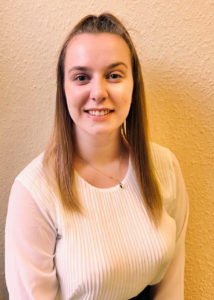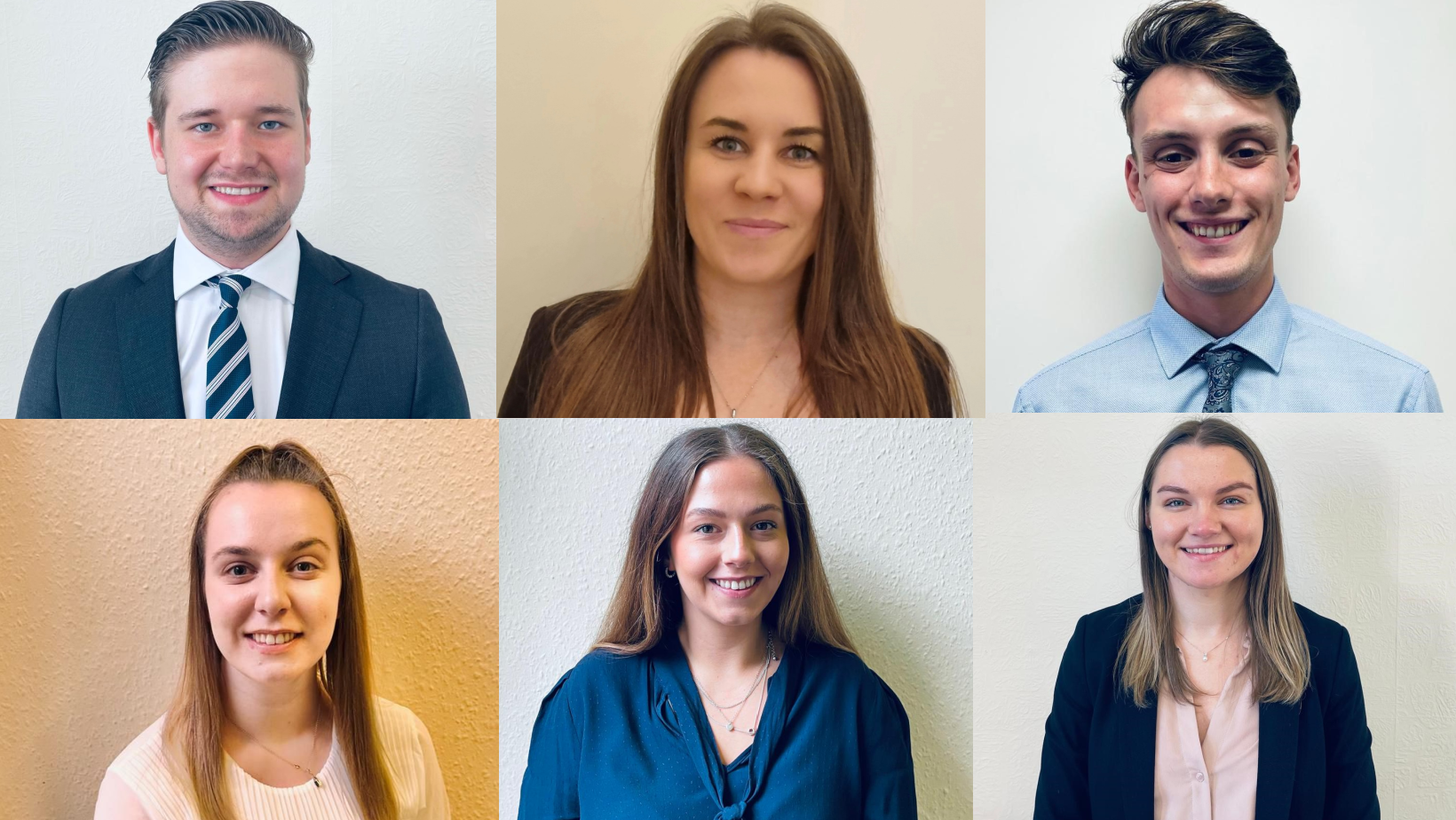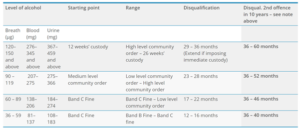Monthly Archives: January 2023
As a firm we have had to react to changing circumstances over the last last few years. This has resulted in us investing time and resources in an increased number of trainee solicitors.
Legal aid in crisis?
Once again the Government has ignored advice as to the financial difficulties legal aid firms face. This advice included the necessity for an immediate and significant rise in fees to permit the sector to remain viable.
Instead, the Secretary of State, Dominic Raab, has imposed a real terms cut in fees against a background of fee levels that have been, at best, frozen since the 1990s.
The position is such that the Law Society has begun to advise that firms review their reliance on criminal legal aid work and begin to plan to withdraw from providing the service.
Recruitment and Retention crisis
The furlough scheme allowed criminal lawyers the time to re-evaluate there position, with many across the sector choosing academia, family law, the independent Bar or civil practice.
Perhaps the biggest threat to staff recruitment and retention has come from the Crown Prosecution Service who launched an aggressive recruitment campaign in January 2020. Firms across the country have seen an exodus of staff to the prosecution that offers salaries that may not be matched in private practice and, on the face of it, a better work life balance.
Investment in trainee solicitors
In response to this combination of factors we have chosen to increase our investment in trainee solicitors specialising in criminal defence. We know that the work will always be interesting and hope that those who apply will remain committed to what can be a difficult and challenging job but ultimately a rewarding one.
As a result we currently employ six trainees across our offices.
We ensure that they obtain their police accreditation so that they are able to provide advice and representation to those being interviewed by the police, under the supervision of solicitor and Higher Court Advocate Shannon English. This ensures a consistency of approach to their training and allows them the pleasure of taking part in our out of hours’ rota. Advice is provided to those in police custody 24 hours a day, 7 days a week.
Thereafter they learn the skills they need through hands on experience preparing cases that are due before the Magistrates’ Court, Crown Court and the Court of Appeal.
Our trainee solicitors will undertake the courses required for qualification, but will choose the options that are bested suited to a career in criminal defence including courses preparing them for securing their Higher Rights of Audience.
At the end of training period there is invariably posts available across our offices as an assistant solicitor, representing clients at the police station and before the Magistrates’ Court with the opportunity for career development to become a Solicitor Advocate representing those facing allegations before the Crown Court.
Meet our trainee solicitors

Kinga Nowak joined VHS Fletchers in June 2021, having initially completed a law degree in her native Poland before moving to the UK. She took an access course in criminal law before completing her Law Degree at the University of Lincoln. Following that Kinga completed her Legal Practice Course and Masters in Law at Nottingham Trent University.
Kinga will qualify in June 2023.

Declan Smith joined VHS Fletchers in July 2021, initially as a Paralegal at our Chesterfield Office before commencing his training contract.
He graduated from the University of Derby in 2020 with an undergraduate degree in law, before continuing his studies completing the Legal Practice Course in the spring of 2021 with the aim of qualifying as a solicitor.
Declan is to qualify as a solicitor in August 2023.

Danielle Lunn joined VHS Fletchers in July 2022 as a Trainee Solicitor at our Nottingham office.
Her undergraduate legal studies were completed at Manchester Metropolitan University in 2020, graduating with a first-class honours Law degree. She then went on to complete the Legal Practice Course and Master’s in Law at Nottingham Trent University achieving a distinction.
Danielle will complete her training in January 2024.

Chloe Wright joined VHS Fletchers in January 2022 as a Trainee Solicitor at our Chesterfield office.
Having graduated from Sheffield Hallam University in the summer of 2020 with an undergraduate degree in Law., Chloe then continued her studies at Leeds Beckett University, completing the Legal Practice Course in the spring of 2021 before completing a masters degree the following summer.
Chloe will qualify in January 2024.

Patrick Fisher, known to many as Paddy, joined VHS Fletchers in July 2022 as a Trainee Solicitor in our Derby office.
He completed his undergraduate degree in Law at Nottingham Trent University, graduating in 2021 with a 2:1 classification.
Following this, he went on to study for his Legal Practice Course and Master’s continuing with his studies at Nottingham Law School.
Paddy is due to qualify in July 2024.

Kirsty Gregson joined VHS Fletchers in January 2023 as a Trainee Solicitor at our Nottingham office.
Kirsty completed her law studies at the University of Leicester in 2021, graduating with first-class honours. Kirsty then completed her Legal Practice Course and Masters in Nottingham at the University of Law.
Kirsty will qualify as a solicitor in July 2024.
Future Plans
We will shortly be recruiting for at least one trainee post based at our Nottingham office and due to start in July 2023. We will advertise the post as usual on Crimeline, and our LinkedIn, Facebook, Twitter and Instagram pages.
Please keep an eye on those if you are likely to be interested.
Monthly Archives: January 2023
The use of intermediaries during criminal trials is becoming increasingly commonplace. An intermediary may be used to assist any witness, including a defendant, give evidence.
The functions of an intermediary
“Intermediaries are communication specialists (not supporters or expert witnesses) whose role is to facilitate communication between the witness and the court, including the advocates. Intermediaries are independent of the parties and owe their duty to the court.”
Directing the Jury
At the trial, before the witness or defendant gives evidence, the judge should explain to the jury the following:
- The need for an intermediary: e.g. by identifying the problems arising from the age or other difficulties of the defendant or witness.
- The purpose of an intermediary: which is to assist in communication, among other things by helping advocates to ask questions in a way the defendant or witness can understand and/or assisting the defendant or witness to communicate his/her answers to the jury.
- The intermediary is independent of the parties, is present only to assist communication and is not a witness and so is not permitted to give evidence.
- The use of the intermediary must not affect the jury’s assessment of the evidence of the defendant or witness and is no reflection on the defendant or witness.
- If the defendant elects to give evidence, it may be appropriate at this point to give more detail of any difficulties the defendant has, if those difficulties may affect the perception of the jury of the defendant’s evidence.
Assisting a Defendant
The current provisions concerning intermediaries are very much stacked in favour of assistance for prosecution witnesses, but case law makes it very clear that defendants are entitled to equal treatment.
Recent case law (e.g. Dean Thomas [2020] EWCA Crim 117) has placed further hurdles in the way of defendants seeking assistance, but we will always ensure that the legal rights of those we represent are fully protected. Appropriate applications for an intermediary will be made where necessary.
Giving evidence is daunting for most people, but particularly so for defendants facing the considerable pressure of being accused of an offence that they deny.
You can be assured that we will always act to enable you to present the best evidence possible.
Advocates and litigators experienced in dealing with intermediaries and vulnerable witnesses
Our Higher Court Advocates Andrew Wesley, William Bennett and Denney Lau have all undertaken specialist advocacy and vulnerable witness training.
This involved learning the particular skill of planning questioning suitable to the characteristics of a witness or defendant, taking into account intermediary reports and suggestions. It is potentially a difficult task to elicit correct facts from vulnerable witnesses where the ability to question is limited.
 Our advocates will regularly use the Advocates’ Gateway Toolkit that provides assistance in identifying when a witness or defendant may be vulnerable, as well as helping in the formulation of questions for those who may have, for example, autism or a learning difficulty, or be vulnerable due to their youth.
Our advocates will regularly use the Advocates’ Gateway Toolkit that provides assistance in identifying when a witness or defendant may be vulnerable, as well as helping in the formulation of questions for those who may have, for example, autism or a learning difficulty, or be vulnerable due to their youth.
Our litigators are experienced in identifying clients or their witnesses who may be vulnerable and benefit from the assistance of an intermediary.
Ask for our specialist advice
We provide nationwide advice and representation in criminal matters from our offices across the East Midlands. You can find your nearest office here have offices across the East Midlands and will happily travel across the country to provide representation for all football related offences.

Alternatively you can contact us using the form below.
Contact
Monthly Archives: January 2023
It’s funny how things change as the years pass by. Perhaps only ten years ago, if we were thinking about particular spikes in alleged criminal offending over the Christmas period, the one that would jump out would always be drunk driving.
These days it is common to come across drug driving due to advances in technology and the ability to detect an increasing range of substances in the body.
It is well documented that if people believe the chances of detection to be low, the temptation to commit a crime is higher. Most people know that there is considerable pressure on police resources. Therefore even when we see a police car on the roads, it is most likely already being deployed to an active incident, not cruising the streets looking for errant drivers.
Ironically, the story here tends to be related to the morning after.
The main event is often an otherwise minor road traffic accident attracting the attention of a passing police officer, resulting in alcohol and drug testing and an arrest for those still affected by the excesses of the night before.
Drugs can be particularly problematic as their journey through the body is much less predictable than alcohol, putting those users at risk for extended periods.
Road traffic law remains one of the most complex areas of criminal law, so if you are being investigated for any drug or alcohol-related driving incident or have been charged or summonsed to appear before a court, it is very much in your interests to contact us at the first opportunity. These offences will invariably result in a driving disqualification if you are convicted. The stakes can be enormous, particularly if you rely on a driving licence as part of your employment.
We will explore all available offences and mitigation and ensure you receive the finest representation.
Drug Driving – Sentencing Guidance
As a guide, where an offence of driving or attempting to drive has been committed and there are no factors that increase seriousness the Court should consider a starting point of a Band C fine, and a disqualification in the region of 12–22 months.
Where there are factors that increase seriousness, the Court should consider increasing the sentence on the basis of the level of seriousness.
The community order threshold is likely to be crossed where there is evidence of one or more factors that increase seriousness. The Court should also consider imposing a disqualification in the region of 23–28 months.
The custody threshold is likely to be crossed where there is evidence of one or more factors that increase seriousness and one or more aggravating factors. The Court should also consider imposing a disqualification in the region of 29–36 months.
Drink Driving – Sentencing Guidance
The starting point applies to all offenders irrespective of plea or previous convictions.
Drink and drug driving defence solicitors
If you do make a mistake and find yourself in trouble, there is a lot we can do to assist you.
In some cases the police will want to interview you about the offence. If this is the case, whether under arrest or as a volunteer, always make sure you seek our free and independent legal advice. You can read about the benefits here.
The police must follow complex procedures to establish a case against you. Our lawyers will be able to analyse the evidence to ensure that the procedures have been followed. We can successfully challenge the evidence in your case.
A road traffic solicitor can also investigate issues such as ‘laced drinks’ which can raise the opportunity to avoid disqualification. We will also consider other ‘special reasons’ that could be raised on your behalf. This might include the shortness of distance that was driven.
Well-presented mitigation can make a real difference to the outcome. Even where a disqualification cannot be avoided, we can often achieve a reduction in length.
Legal aid might be available dependent upon your means and the circumstances of your case. Alternatively, you will be able to fund your case through an affordable fixed fee.
Contact one of our drink drive solicitors at your nearest office if you are being investigated by the police or taken to court as a result of the Christmas drink drive campaign. They will, of course, be able to discuss and other driving matters that you face.
Alternatively you can use the contact form below to ask for a call about your case.



